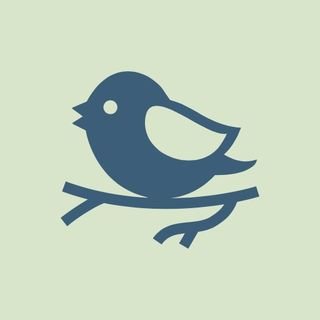
birdspotuk
@BirdSpotUK
Followers
22K
Following
507
Media
2K
Statuses
2K
The place for birds @ us for a repost of interesting things
London
Joined February 2009
After almost becoming extinct in the UK, red kites have made a remarkable comeback after successful reintroduction programmes. Find out more about these colourful raptors: https://t.co/St10AEayUm
0
3
6
Now the days are getting warmer and longer, the UK will soon be welcoming some avian visitors. Click through to learn about 10 birds you might spot this spring and summer: https://t.co/EQYsc2qWPd
0
1
3
Click through for a comprehensive guide to British birds' eggs https://t.co/vzNdTDbn6W Remember in the UK wild birds are protected by law under the Wildlife and Countryside Act 1981 and it is illegal to intentionally take or destroy the eggs of any wild bird
0
0
4
Cranes are known for the beautiful courtship rituals and in recent years have made a remarkable comeback in the UK. Click through to learn more about these elegant birds: https://t.co/6iKpUMYlnK
0
3
7
Four and twenty blackbirds baked in a pie ... Discover the origins and hidden meaning of the nursery rhyme "Sing a Song of Sixpence", including what the 24 blackbirds are believed to represent. https://t.co/5PHLF9t1o2
0
1
5
Did you know if a long-tailed tit’s nest fails, they may not attempt to re-nest. Instead, they become helpers at the nest of a related breeding pair, increasing the chances of the chicks’ survival. Find out more about these adorable birds: https://t.co/e1LeXEicZf
0
1
2
Lyrebirds are some of the greatest mimics in the animal kingdom. Click through to find out what's going on when they make the sounds of video game lasers: https://t.co/Awb0aqkmAe
0
1
3
It's International Dawn Chorus Day, a celebration of nature's greatest symphony. Click through to find out more and compose your very own dawn chorus: https://t.co/edfVLfSHy6
0
0
9
Chinese startup unveils AI that translates birdsong. Click through to find out more: https://t.co/EySckzQusl
0
2
3
Competition time! Win a copy of The Great Auk by Tim Birkhead. Click through to enter: https://t.co/aXyFjYAiAf
0
1
1
Turkey – the young male is called jake, and the young female is called jenny, and we have no idea why, although it may be due to the fashion of the 15th century to give animal species human names.
0
0
1
Swan – cygnet or flapper. Cygnet is the diminutive of the Old French word cigne meaning ‘swan’. We assume flappers is due to the habit of young swans flapping their wings.
1
1
2
Manx shearwaters have retained the scientific name Puffinus puffinus, and puffins only acquired their name in the 19th century perhaps due to their similar nesting habits to shearwaters.
1
0
0
Puffin – puffling. Interestingly, puffin (from puffed meaning ‘swollen’) was originally used to describe the cured, fatty meat of nestling Manx shearwaters which was a delicacy from the 14th to 19th centuries.
1
0
0
Guineafowl – keet, or guinea-keet, due the sound the young make.
1
0
0
Other examples of words that lost their initial ‘n’ include apron, adder, orange, and (h)umble-pie. Although eyas is a term usually reserved for young birds used in falconry it can refer to the young of any nesting falcon or hawk.
1
0
0
The change in spelling is similar to how aerie (referenced in Shakespeare’s Richard III ‘Our aerie buildeth in the cedar’s top’), become eyry.
1
0
0
Falcon – eyas. Again, this is from a French word, niais or neias meaning ‘caught-from-the nest’. Middle English speakers mishead ‘a neias’ as ‘an eias’ and eventually the initial n- was lost from neias until it morphed into eyas.
1
0
0
It became particularly popular in the 18th century when all sorts of new words were created such as piglet, starlet, and ringlet.
1
0
0
